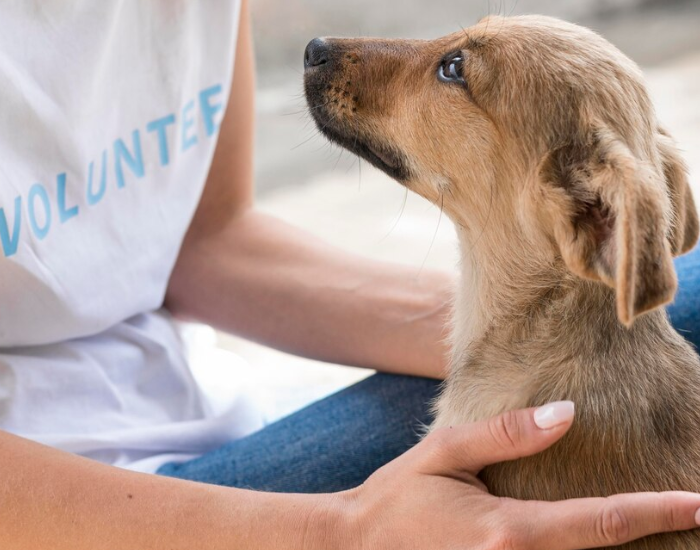Psychiatric assistance dogs are trained to support individuals with mental health disabilities, including anxiety, depression, post-traumatic stress disorder (PTSD), and other conditions. These dogs are recognized as service animals in many countries, including Spain. However, there are specific legal requirements for owning a psychiatric assistance dog in Spain. In this blog post, we will explore the legal definition of psychiatric assistance dogs in Spain, the laws and regulations governing their ownership, and the benefits of owning a psychiatric assistance dog.
Legal Definition of Psychiatric Assistance Dogs in Spain
In Spain, psychiatric assistance dogs are defined as "perros de asistencia" or assistance dogs. Psychiatric assistance dogs are recognized and protected under the law in Spain. In general, the law defines an assistance dog as a trained animal that is recognized as providing support to a person with a disability or medical condition.
In Spain, psychiatric assistance dogs are considered a type of assistance dog, and are recognized as such under the country's disability laws. According to the Spanish government's guidelines on assistance animals, a psychiatric assistance dog is defined as a dog that is trained to perform specific tasks to mitigate the effects of a psychiatric disability, such as anxiety or depression.
To be recognized as a psychiatric assistance dog in Spain, the dog must be trained by an accredited organization or trainer. The dog must also undergo a rigorous training program that includes socialization, obedience, and specific tasks that are tailored to the needs of the person with a psychiatric disability.
Once a dog has completed its training, it can be certified as a psychiatric assistance dog by the organization or trainer that provided the training. Certification is an important step in ensuring that the dog and its owner are afforded legal protections and rights under Spanish law。
Under Spanish law, individuals with psychiatric disabilities are entitled to the same rights and protections as those with physical disabilities. This includes the right to access public spaces and transportation with their assistance dog, as well as the right to reasonable accommodations in housing and employment.
It is important to note that while psychiatric assistance dogs are protected under Spanish law, they are not considered pets. As such, they are not subject to the same rules and regulations as traditional pets. For example, assistance dogs are allowed in restaurants and other public spaces where pets are typically not permitted.
Overall, the legal definition of psychiatric assistance dogs in Spain is similar to that of other European countries. These dogs are recognized as providing essential support to individuals with psychiatric disabilities, and are afforded legal protections and rights under the law.
Laws and Regulations Governing Psychiatric Assistance Dogs in Spain
In Spain, the use of psychiatric assistance dogs is governed by the country's disability laws, specifically the Law of Autonomy and Personal Dependency (Ley de Autonomía Personal y Atención a la Dependencia). This law recognizes the use of assistance dogs for individuals with disabilities and outlines the legal requirements for owning a psychiatric assistance dog.
To own a psychiatric assistance dog in Spain, individuals must have a disability that is recognized by Spanish law, and their dog must be trained to perform specific tasks related to their disability. Additionally, the dog must be registered with the local authorities and have up-to-date vaccinations and health certificates.
Benefits of Owning a Psychiatric Assistance Dog in Spain
Owning a psychiatric assistance dog in Spain can provide numerous benefits for individuals with mental health disabilities. These dogs can help alleviate symptoms of anxiety, depression, and PTSD by providing emotional support and performing specific tasks to aid their owners.
Some of the benefits of owning a psychiatric assistance dog in Spain include:
1. Emotional Support:
Psychiatric assistance dogs are trained to provide emotional support to their owners, which can help reduce feelings of anxiety, depression, and other mental health conditions.
2. Increased Independence:
Psychiatric assistance dogs can help their owners become more independent by performing tasks such as retrieving medication or guiding them in public spaces.
3. Improved Socialization:
Owning a psychiatric assistance dog can provide opportunities for socialization, as these dogs often attract attention and can help their owners feel more comfortable in social situations.
4. Enhanced Safety:
Psychiatric assistance dogs are trained to recognize and respond to their owners' distress signals, which can help prevent dangerous situations from escalating.
5. Greater Quality of Life:
Overall, owning a psychiatric assistance dog can improve an individual's quality of life by providing emotional support, increasing independence, and enhancing overall well-being.
Conclusion: Psychiatric assistance dogs play an important role in supporting individuals with mental health disabilities, including anxiety, depression, and PTSD. In Spain, these dogs are recognized as service animals and are protected under the country's disability laws. By understanding the legal definition of psychiatric assistance dogs in Spain and the laws and regulations governing their ownership, individuals with mental health disabilities can benefit from the support and companionship provided by these highly trained dogs.













